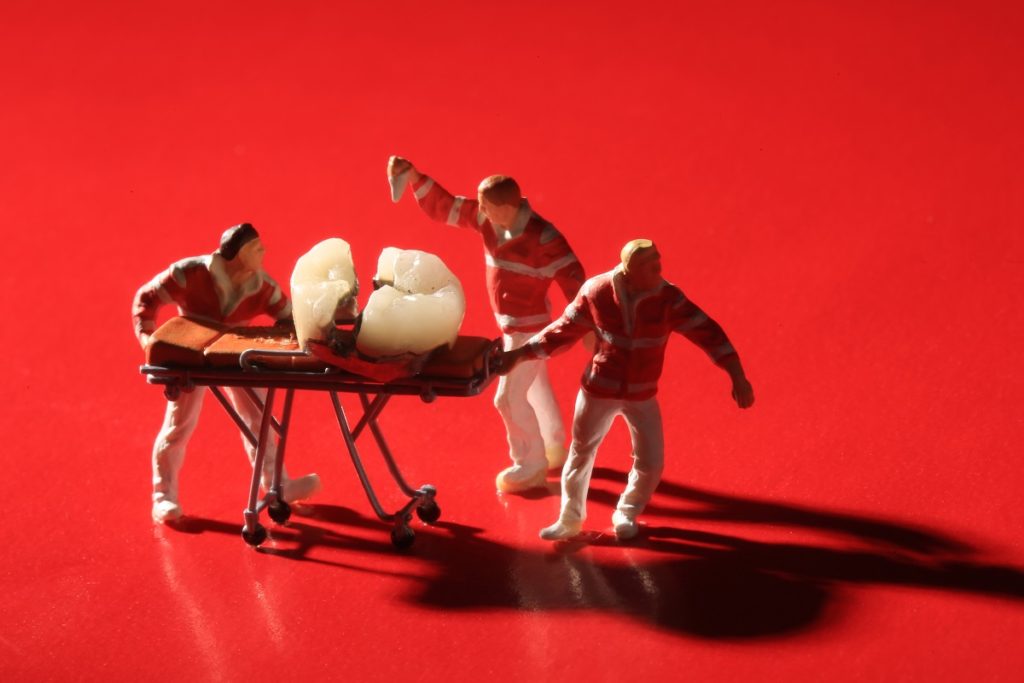Dental emergencies can never come at the right time. They can be distressing and worrying events, which can be even more distressing when they occur in a patient not prepared for dental emergencies. But what exactly counts as a dental emergency? In general, dental emergencies are situations where an immediate visit to the dentist is required due to an unexpected condition that comes with immense pain or obvious injury. In most cases the sooner the patient is seen, the more likely the treatment is to be successful.
Dental emergencies are frequently accompanied with serious pain; this can be distracting and often making the right decisions becomes more difficult. Therefore, it is crucial to be well prepared for dental emergencies, as this can decrease the amount of stress a patient may have. It is also important to know that some smaller injuries, such as a chipping or a smaller fracture, do not necessarily require emergency dental appointment. These issues can usually wait to receive treatment during normal hours. But how should one prepare for a serious dental emergency if it actually occurs?
Have an emergency dentist
Having a dentist to turn to in case of emergencies can save a lot of time and stress, as this emergency dentist can be immediately visited if an emergency occurs. They should be able to take care of the issue to the best of their ability and ensure the right aftercare is put into place.
Dental traumas

A dental trauma involves traumatic injury sustained by the hard and/or soft tissues of the teeth, the oral cavity, or the face in general. Dental traumas are more likely to happen to children with an active lifestyle, but adults who engage in sports or activities have an increased risk of dental traumas, such as football, rugby, or martial arts. A dental injury can involve injury sustained by the enamel only, tooth fractures, or even the loss of a tooth or multiple teeth.
If a person suffers a dental injury, patients should make sure to book an emergency appointment with their emergency dentist as soon as possible. Often, the earlier treatment can be received, the more successful it will be and the less complications occur. If a tooth has been lost, it should be placed it in water, or preferably milk or specialised solutions from the pharmacy. This may increase the likelihood of the tooth’s reimplantation being successful.
Infections, cavities, tooth loss
As the naturally occurring bacteria of the oral cavity produce acids, they can dissolve the mineral components of the teeth, which can result in tooth decay, also known as caries. When the bacteria proceed to reach the pulp tissue in the middle of a tooth, a serious infection can occur. It is important to recognise these cases and turn to a dentist immediately, as abscesses can result in systemic infections, which in some cases can even become life threatening. While waiting to attend an emergency dental appointment, taking ibuprofen, paracetamol or other NSAIDs can help reduce the amount of pain being experienced.

